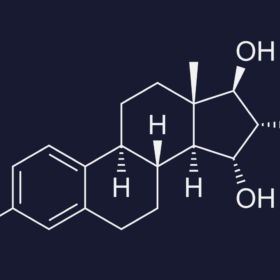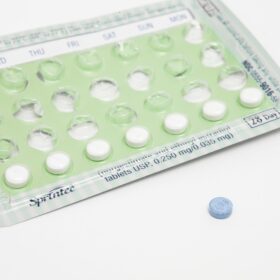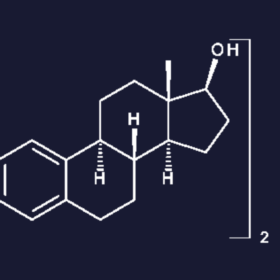
What is Natural Progesterone?
What's the lowdown?
Progesterone is a naturally occurring hormone in the body that plays a key role in pregnancy
It is secreted by the corpus luteum which is the remnants of the dominant ovarian follicle after the egg is released
Synthetic progesterone called progestin is used instead of natural progesterone in contraception methods
So what is progesterone?
Progesterone is part of the family of progestogens, a group of hormones made by the human body. Its name comes from its role in supporting gestation (or in simpler terms, pregnancy) and originates from the Latin word “gestare”, meaning “to carry or to bear.” The progesterone that naturally occurs in your body is referred to as natural progesterone.
We know what you’re thinking, and it’s a good question: why is something that naturally supports pregnancy used as contraception?
Let’s break it down. Natural progesterone is not actually used in contraceptives; instead, a synthetic, man-made version of progesterone called a ‘progestin’ is used. These, alongside our natural progestogens, all interact with progesterone receptors in our cells, which can affect and interrupt our cycle in various different ways.
What is natural progesterone?
Made by the body, progesterone is secreted by the Corpus Luteum (remnants of the dominant ovarian follicle) on the ovary after ovulation has occurred (a corpus what, you ask? Here’s an article if you’d like to get up to speed).
Progesterone maintains the lining of the uterus to allow for the implantation of a fertilised egg. If fertilisation doesn’t happen then the Corpus Luteum stops secreting the hormone, the uterine lining breaks down and a period occurs. If fertilisation and implantation do occur, then progesterone secretion continues by the Corpus Luteum until the placenta takes over the majority of hormone production by the eighth week of pregnancy1.
Low progesterone
Some women might suffer from low levels of progesterone in the body. This can manifest as:
- Irregular periods
- Headaches
- Infertility
- Mood changes
- Difficulty sleeping
- Weight gain, fluid retention or bloating
- Hot flashes
There are multiple different reasons why you might have low progesterone. It can be due to anovulatory cycles (where an egg is not released from the follicle so it does not become a corpus luteum), low thyroid function, low cholesterol levels, increased cortisol levels and increased prolactin levels.
How is progesterone used in contraception?
We know what you’re thinking, and it’s a good question: why is something that naturally supports pregnancy used as contraception?Let’s break it down. Natural progesterone is not actually used in contraceptives; instead, a synthetic, man-made version of progesterone called a ‘progestin’ is used. These, alongside our natural progestogens, all interact with progesterone receptors in our cells, which can affect and interrupt our cycle in various different ways. Progestin is used in progesterone-only pills, implant, the injection and the coil.
Our medical review process
This article has been medically reviewed for factual and up to date information by a Lowdown doctor.







